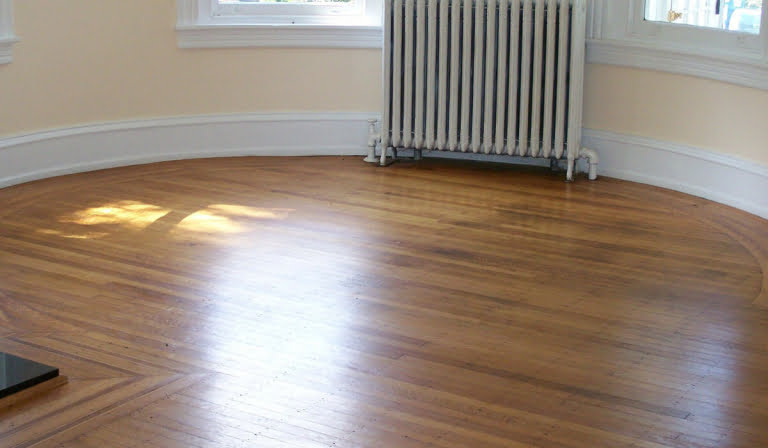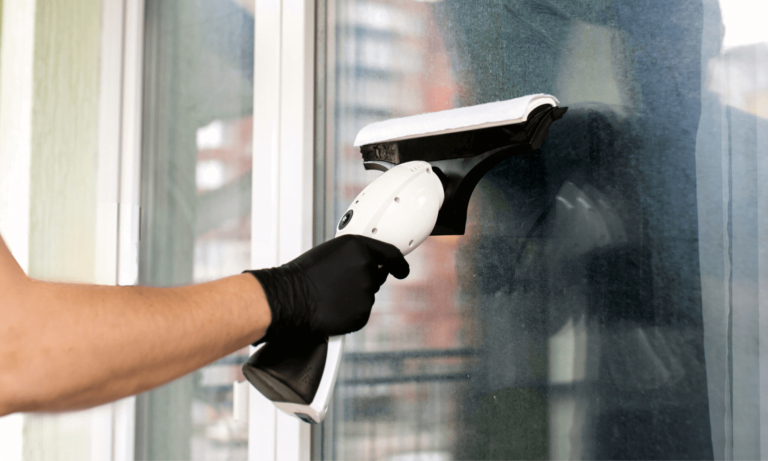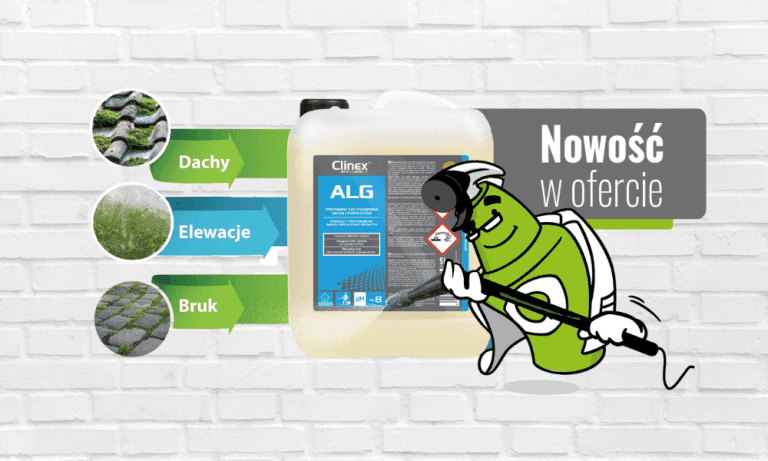Cleaning windows and other glass surfaces is slowly no longer a task for small cleaning companies, but is becoming a serious industry that is in increasing demand every day. In every major city there are glass office buildings with huge glass surfaces. These types of buildings make a very good impression, but they quickly become dirty due to weather conditions, and restoring them to perfect condition is not an easy matter.
From the article you will learn:
- How often should we wash glass surfaces?
- What to consider when choosing a cleaning agent
- How to wash frames and windows
- How to prevent dirt on glass surfaces
Washing glass surfaces such as windows or facades should start with cleaning the elements directly connected to the glass, i.e. frames or structural elements. In this case, the order of washing is very important. Due to the fact that to clean these elements, we will often need preparations other than those dedicated to glass.
To obtain a satisfactory washing effect, dirt such as greasy contaminants from car exhaust fumes and mineral deposits should be removed from the window frames. When selecting cleaning agents, we must not only remember about the contaminants that these agents must remove, but also about the surface we want to clean. We can find a huge amount of materials that can be used to build elements such as window frames or structural elements in an office building, which have various chemical resistance.
How often do we wash glass surfaces?
The frequency of cleaning glass surfaces depends largely on the conditions in the room. The level of outdoor air pollution is also important, this applies to windows and glass facades. Windows get dirty much faster in areas with a high level of dust, i.e. near warehouses and industrial factories. Dirt will appear more often on windows in buildings located near roads with heavy traffic. Therefore, we wash glass surfaces frequently to keep them properly clean. We judge for ourselves whether they are clean enough or whether they need washing.
Cleaning products and the type of surface being cleaned
In each case, including when washing windows, we choose the cleaning agent taking into account the type of material the surface is made of. Removing dirt should not only be effective, but also safe. Such an analysis should be made when choosing a product for cleaning window frames. If they are made of varnished materials or plastic, we use professional agents for cleaning waterproof surfaces. You can also safely use products designed to remove more difficult, greasy dirt. It is also possible to wash the frames with products with an acidic pH. However, they cannot be left on the surface for a long time because there is a risk of discoloration.
Cleaning aluminum frames may be problematic because they easily react with acids and alkalis. They are also not easy to clean, and the dirt that appears on them is difficult to remove. For aluminum, you can use alkaline cleaning agents with the lowest possible concentration.
Washing frames
When washing windows whose frames are made of plastic or various types of painted elements, we can use products dedicated to everyday cleaning of waterproof surfaces. In this case, we can use the Clinex Blink product.
It is a universal liquid for cleaning waterproof surfaces with a pleasant scent. It gives the cleaned surface a delicate shine, ensuring gentle and effective action. Thanks to its high alcohol content, it evaporates quickly and does not leave streaks. If we have more difficult dirt to remove, we can use alkaline agents to remove greasy dirt. Such preparations are ClinexFastPlast and Clinex 4Dirt .
The first is an effective and safe plastic cleaning liquid. The preparation perfectly removes dirt from surfaces with a porous structure. It leaves an antistatic coating that prevents dust from accumulating. Does not leave streaks or stains. The second one, Clinex 4Dirt, is a concentrated, universal preparation intended for removing all types of difficult, greasy dirt. Perfectly dissolves old oil and fat contaminants of animal and plant origin, petroleum contaminants and multi-layer layers of dirt. Remember to rinse well with water after using chemical products on window frames. So that when left in the sun for a longer period of time, they do not cause discoloration or damage to the material.
Washing windows and large glass surfaces
When cleaning windows and glass surfaces, use appropriate cleaning agents dedicated to such surfaces. We will then be sure that we will clean the dirty glass well and quickly, leaving no streaks or stains. The preparation recommended for cleaning large glass surfaces is Clinex PROFIT Glass .
It is an effective and reliable super concentrate for cleaning windows, mirrors, crystals, enameled and laminated surfaces, as well as stainless steel elements. Effectively removes dried dirt and grease, and even insects. Additionally, the formula enriched with antistatic agents protects the surface against quick dirt. The second preparation with similar properties, but ready for use, is Clinex Glass . The Clinex brand also has a glass cleaning preparation in the form of Clinex Glass Foam . The modern formula effectively removes dirt from cleaned surfaces, and the polymers and antistatic agents used in the composition protect them against re-soiling.
Cleaning glass surfaces is a topic that is becoming more and more serious every day. Mainly due to the growing number of glass office buildings in city centers. Choosing the right product and using it regularly will make the work easier and the effects much more noticeable.
We clean windows with clean tools
An effective cleaning agent for frames and windows will not be effective enough if we use dirty tools. When in contact with water, they will smear, resulting in unsightly streaks and still existing, but this time smeared, dirt. Use new, clean cloths for each subsequent window cleaning. This reduces the risk of streaks. If you use them several times, rinse them thoroughly after each cleaning. Additionally, do not use them to clean other surfaces.
We prevent difficult dirt
To make cleaning glass surfaces easier, it is worth protecting them from difficult dirt. This lowers costs and reduces workload. Very often, the scale of window contamination results from the structure of the building. It should have an appropriate rainwater drainage system. Otherwise, it will flow down the windows, collecting dirt deposited on the building’s facade. Furthermore, access to glass surfaces should be sufficiently accessible. Otherwise, it will be impossible or difficult to wash them, sometimes even dangerous. More difficult dirt should be removed as soon as possible after it appears. However, this is difficult with large glass surfaces in public buildings. Therefore, it is recommended to use specialized products with an effective formula and strong but safe action.
Large-format glazing is a characteristic landscape of the urban area. Glazed buildings look very impressive, but cleaning such large glass surfaces is much more difficult than typical windows. Remember the order of washing – first the frames, then the glass, using recommended, safe and targeted agents, as well as systematic cleaning.
Summary
- The frequency of washing large glass surfaces depends on the conditions inside and outside. The greatest dirt appears in industrial plants and near roads with high traffic
- For painted or plastic frames, we use professional waterproof surface cleaners with an acidic pH. We clean aluminum frames with alkaline cleaning agents with the lowest possible concentration.
- We clean window frames with Clinex Blink, ClinexFastPlast and Clinex 4Dirt.
- We use Clinex PROFIT Glass, Clinex Glass and Clinex Glass Foam to clean glass surfaces.
- We always use clean tools – cloths and sponges.






